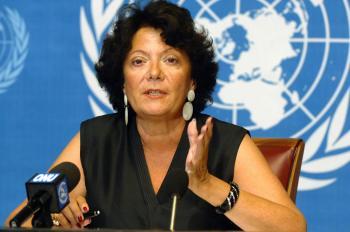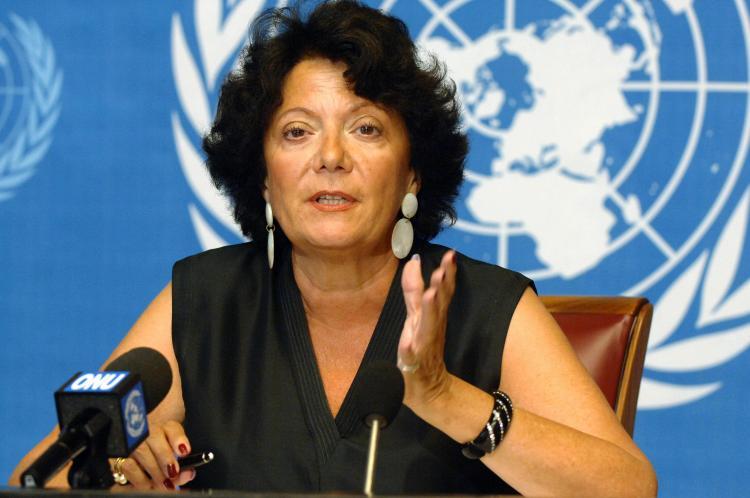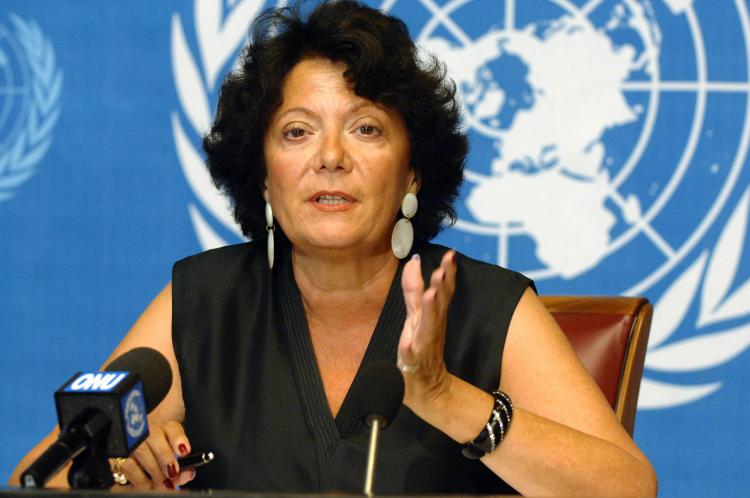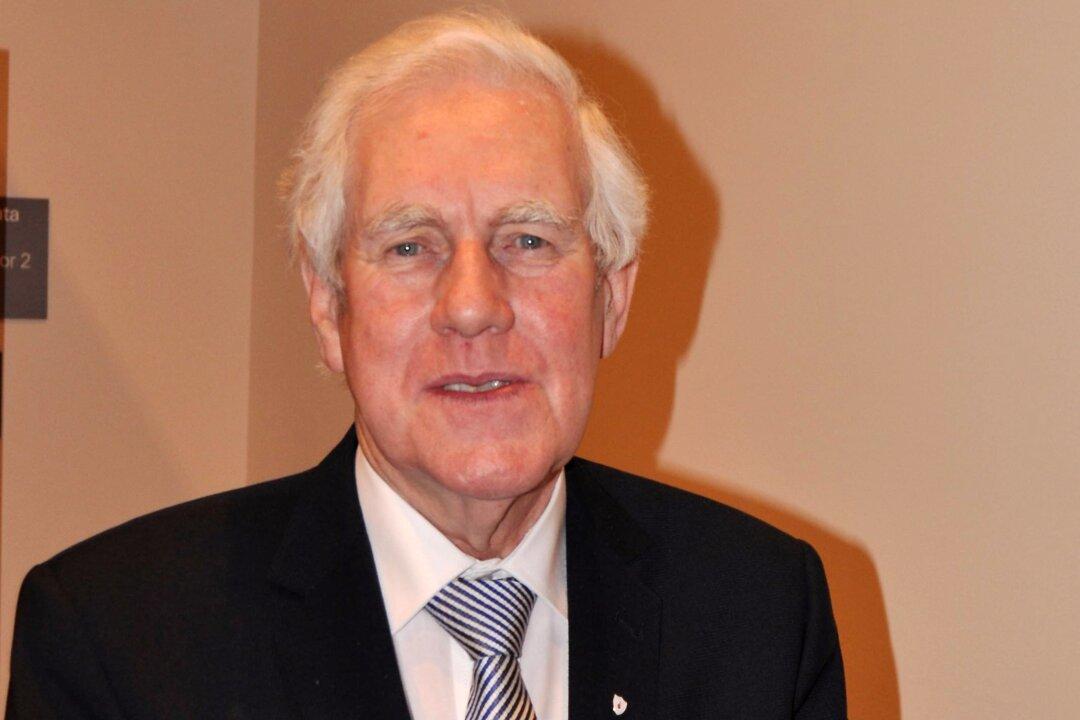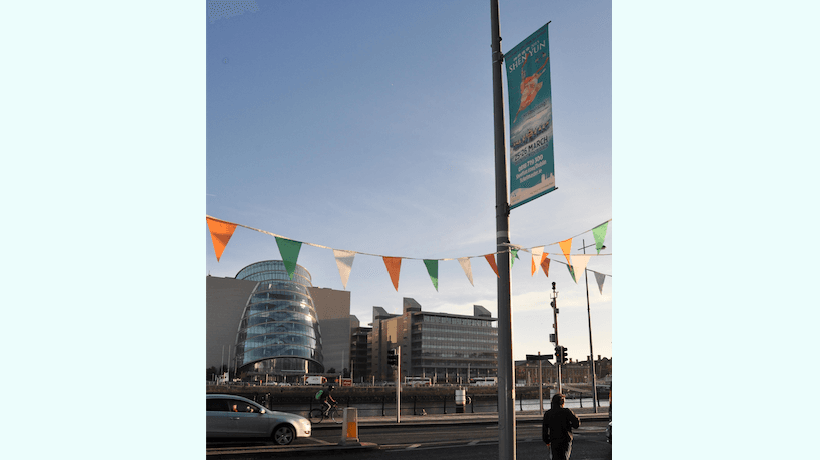The United Nations Human Rights Committee released its findings with respect to Ireland’s Human Rights record last week.
The Irish Council for Civil Liberties (ICCL) has welcomed the UN Committee’s concluding observations which outlined Ireland’s failure to uphold human rights guarantees under the International Covenant on Civil and Political Rights (ICCPR).
The Human Rights Committee focused on CIA rendition operations through Shannon Airport, summary removal of migrants without any due process and victims of human trafficking. These issues were recently highlighted by a Non Governmental Organisational report (NGO) which was launched in July 2008 by the ICCL and partner NGOs.
The UN Committee expressed their concerns about allegations that Irish airports have been used as stop off points for flights carrying persons to countries where they risk being tortured. The UN Committee advised the Irish Government that care needs to be taken when relying on official assurances that these flights were not carrying such persons. The UN Committee recommended that Ireland should establish a regime for the control of suspicious flights and ensure that all allegations of so called renditions are publicly investigated.
The Irish examination in Geneva last week was attended by ICCL Deputy Director Tanya Ward, she stated, “This time the Human Rights Committee has been particularly critical of Ireland’s poor performance under this human rights convention. It did not accept the Government’s defence of its stance on extraordinary rendition and called on Ireland to establish a proper regime to investigate these flights.
“The summary removal of migrants without any due process, provided for in the Immigration, Residence and Protection bill, should be outlawed” she continued.
“The Committee’s concluding observations provide a crystal clear picture of Ireland’s failure to live up to its human rights obligations, and an extensive ‘to do’ list for improvement. The ICCL calls on the Government immediately to acknowledge the Committee and the Irish NGO community by addressing their concerns in a substantive and meaningful manner”, she concluded.
Amnesty International Irish Section have also welcomed the recommendations. The organisation’s Executive Director Colm O’Gorman called on the Government last week to accept and implement the recommendations.
“The Irish Government’s position of relying on US assurances that Shannon is not being used to facilitate extraordinary renditions is in tatters,” said Mr O’Gorman.
“It is one thing for the Government to refuse to listen to the voice of human rights organisations and legal experts but when the United Nations joins the Council of Europe in supporting our position the Government cannot continue to bury its head in the sand,” said Mr O’Gorman.
Labour’s Mr Joe Costello TD supported the UN’s comments. “It is simply unacceptable for a sovereign, neutral country to stand idly by while evidence continues to mount that Shannon Airport has been used by CIA aircraft which are known to have been involved in extraordinary rendition,” said The Labour TD.
He also called for the Minister for Foreign Affairs, Micheal Martin, to act decisively.
The Committee also expressed concern at provisions in the Immigration, Residence and Protection Bill 2008 which allows for summary removal of migrants without any form of due process or access to the courts.
The UN Committee pointed out that the denial of recourse to legal protection is a violation of article 13 of the ICCPR. They recommend that the Government makes changes the Immigration, Residence and Protection Bill 2008 to make this practice illegal.
The issues surrounding the victims of human trafficking were also discussed. The UN Human Rights Committee felt that that these people were not being properly protected.
In a statement Amnesty’s Mr O’Gorman said, “Amnesty International welcomed the entry into law last month of the Criminal Law (Human Trafficking) Act 2008 but warned that the Government was still failing trafficking victims.”
“Protections for victims are conditional and fall short of our international commitments under the European Convention on Action Against Trafficking” continued Mr O’Gorman.
“I am calling on the Government to accept the UN’s recommendation to allow trafficking victims to remain in the state even if they do not cooperate with the Gardaí in prosecuting alleged traffickers.
“This would be an important step for the Government in meeting the minimum standards for the protection of these women who have been subjected to horrific abuses,” he concluded.
The Irish Council for Civil Liberties (ICCL) has welcomed the UN Committee’s concluding observations which outlined Ireland’s failure to uphold human rights guarantees under the International Covenant on Civil and Political Rights (ICCPR).
The Human Rights Committee focused on CIA rendition operations through Shannon Airport, summary removal of migrants without any due process and victims of human trafficking. These issues were recently highlighted by a Non Governmental Organisational report (NGO) which was launched in July 2008 by the ICCL and partner NGOs.
Extraordinary Rendition
The UN Committee expressed their concerns about allegations that Irish airports have been used as stop off points for flights carrying persons to countries where they risk being tortured. The UN Committee advised the Irish Government that care needs to be taken when relying on official assurances that these flights were not carrying such persons. The UN Committee recommended that Ireland should establish a regime for the control of suspicious flights and ensure that all allegations of so called renditions are publicly investigated.
The Irish examination in Geneva last week was attended by ICCL Deputy Director Tanya Ward, she stated, “This time the Human Rights Committee has been particularly critical of Ireland’s poor performance under this human rights convention. It did not accept the Government’s defence of its stance on extraordinary rendition and called on Ireland to establish a proper regime to investigate these flights.
“The summary removal of migrants without any due process, provided for in the Immigration, Residence and Protection bill, should be outlawed” she continued.
“The Committee’s concluding observations provide a crystal clear picture of Ireland’s failure to live up to its human rights obligations, and an extensive ‘to do’ list for improvement. The ICCL calls on the Government immediately to acknowledge the Committee and the Irish NGO community by addressing their concerns in a substantive and meaningful manner”, she concluded.
Amnesty International Irish Section have also welcomed the recommendations. The organisation’s Executive Director Colm O’Gorman called on the Government last week to accept and implement the recommendations.
“The Irish Government’s position of relying on US assurances that Shannon is not being used to facilitate extraordinary renditions is in tatters,” said Mr O’Gorman.
“It is one thing for the Government to refuse to listen to the voice of human rights organisations and legal experts but when the United Nations joins the Council of Europe in supporting our position the Government cannot continue to bury its head in the sand,” said Mr O’Gorman.
Labour’s Mr Joe Costello TD supported the UN’s comments. “It is simply unacceptable for a sovereign, neutral country to stand idly by while evidence continues to mount that Shannon Airport has been used by CIA aircraft which are known to have been involved in extraordinary rendition,” said The Labour TD.
He also called for the Minister for Foreign Affairs, Micheal Martin, to act decisively.
The Committee also expressed concern at provisions in the Immigration, Residence and Protection Bill 2008 which allows for summary removal of migrants without any form of due process or access to the courts.
The UN Committee pointed out that the denial of recourse to legal protection is a violation of article 13 of the ICCPR. They recommend that the Government makes changes the Immigration, Residence and Protection Bill 2008 to make this practice illegal.
The issues surrounding the victims of human trafficking were also discussed. The UN Human Rights Committee felt that that these people were not being properly protected.
In a statement Amnesty’s Mr O’Gorman said, “Amnesty International welcomed the entry into law last month of the Criminal Law (Human Trafficking) Act 2008 but warned that the Government was still failing trafficking victims.”
“Protections for victims are conditional and fall short of our international commitments under the European Convention on Action Against Trafficking” continued Mr O’Gorman.
“I am calling on the Government to accept the UN’s recommendation to allow trafficking victims to remain in the state even if they do not cooperate with the Gardaí in prosecuting alleged traffickers.
“This would be an important step for the Government in meeting the minimum standards for the protection of these women who have been subjected to horrific abuses,” he concluded.
